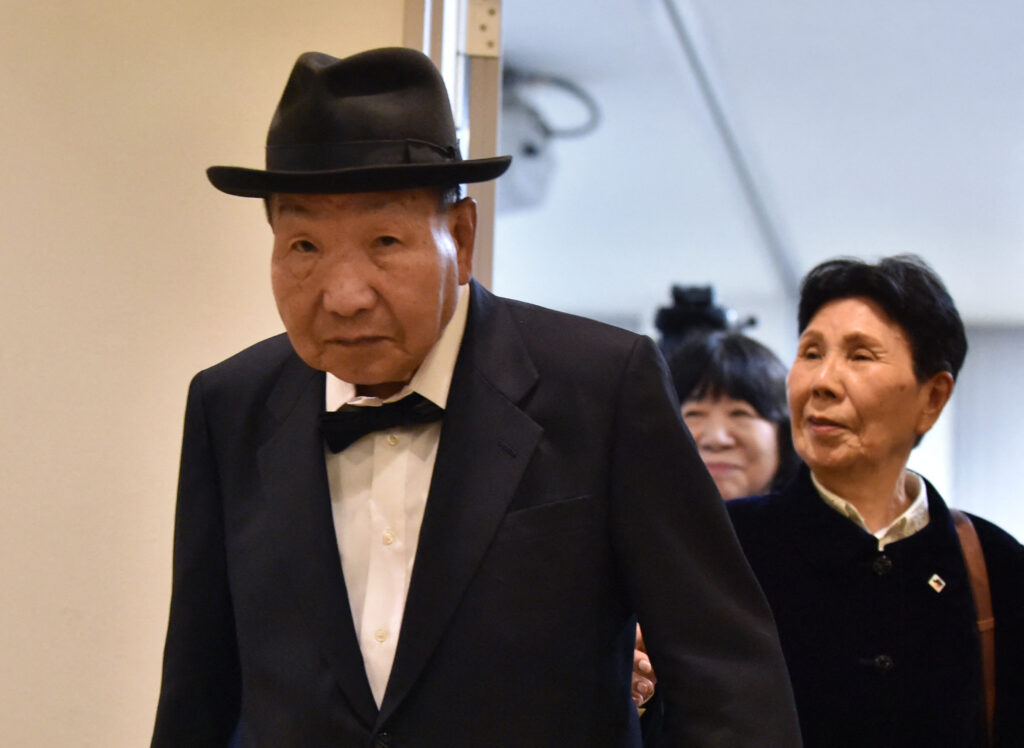
- ARAB NEWS
- 15 Jun 2025

TOKYO: Japan’s justice minister on Friday asked a legal panel to review the country’s retrial system after the acquittal of the world’s longest-serving death row prisoner last year heightened scrutiny of a system often labelled the “Unopenable Door”.
SUZUKI Keisuke tasked the panel of legal experts with scrutinising Japan’s retrial process to recommend any necessary revisions, after it courted criticism for being too snail-paced to safeguard victims of wrongful convictions.
Momentum for a policy change has grown since a court last year quashed the wrongful conviction of 89-year-old Iwao Hakamada, whose case took 42 years to be reopened.
Retrials “play a crucial role” in the justice system as they serve to correct guilty verdicts handed down in error, Suzuki said in a statement read out to the panel.
“The public interest has grown lately over the system, especially in regard to the protracted deliberation on some applications,” he said.
“But at the same time, it’s been pointed out that a significant number of retrial claims are inappropriate or illegitimate,” the minister added.
Under the current system prosecutors have the power to appeal court-issued retrial orders — a factor that, for example, allowed them to delay Hakamada’s redemption by nine years.
Suzuki said the panel should start discussions “immediately” on the process — shaped a century ago and since left nearly untouched — so that “its function as an emergency safety net will be better secured”.
Critics say progress can vary by case because of how long courts can leave retrial applications untouched and because of how diligent each judge can be.
Just one percent of around 1,150 retrial applications in Japan between 2017 and 2021 won approval — leading to its reputation as the “Unopenable Door”.
Only five retrials have been granted in Japan’s post-war history for death row prisoners, all resulting in exoneration, with Hakamada the latest to have his conviction quashed.
AFP